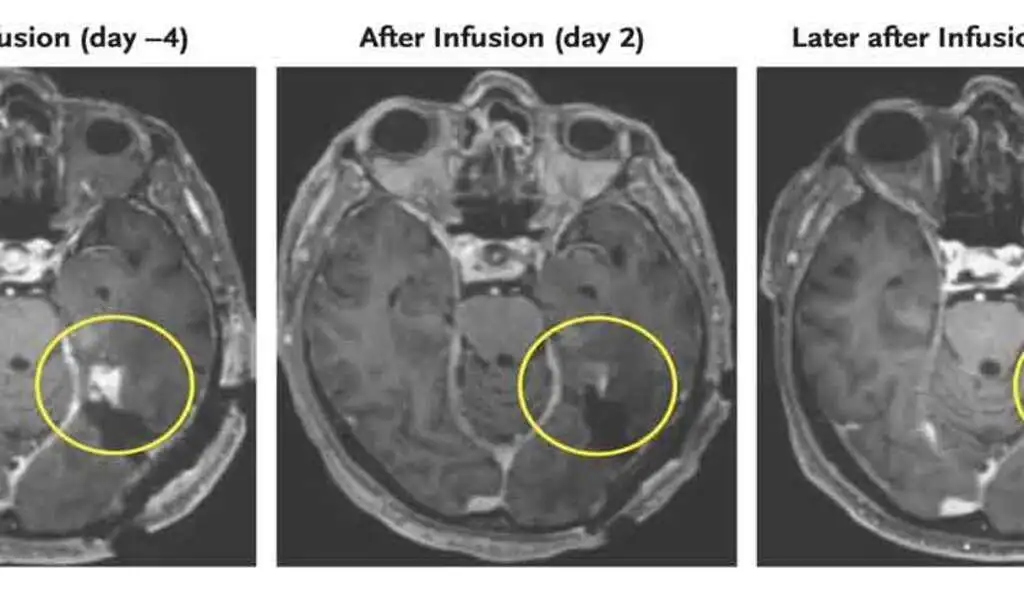(CTN News) – Researchers have developed a new treatment strategy for an aggressive form of brain Tumour that showed promise in two experiments.
Researchers have developed “living drugs” that target glioblastoma by recognizing and destroying immune cells from patients. The cells shrank tumours at least temporarily in the first step of the tests, researchers reported on Wednesday.
The CAR-T therapy has been used to treat blood-related cancers like leukemia, but researchers have had trouble making it work for solid tumours. There are now two separate teams developing next-generation CAR-T versions that can bypass glioblastoma’s defences.
According to Penn’s Dr Stephen Bagley, one of the study’s leaders, “It’s early days” for the study. However, there is a solid foundation to build on and on top of.”
President Joe Biden’s son Beau Biden and long-time Arizona senator John McCain died of glioblastoma, a fast-growing and difficult-to-treat brain cancer. The average patient lives between 12 and 18 months after diagnosis. Even after decades of research, there are few options when it returns.
Cancer hides from the immune system’s T cells in order to fight disease. Doctors use CAR-T therapy to genetically modify a patient’s own T cells in order to better detect cancer cells. Glioblastomas, however, pose an additional challenge – they contain different mutations of cancer cells. Only targeting one type allows the others to continue to grow.
After standard treatment, both Mass General and Penn developed two-pronged approaches and tested them on patients with returning tumours.
Mass General’s Marcela Maus’ lab combined CAR-T with what are called T-cell engaging antibody molecules, which attract regular T cells to join the cancer attack. This formula targets EGFR proteins in glioblastomas but not in normal brain tissue, dubbed CAR-TEAM.
In Penn’s treatment, CAR-Ts are targeted both for EGFR and another protein found in many glioblastomas in order to create “dual-target” CAR-T therapy.
Through catheters, both teams infused the treatment into brain fluid.
According to the researchers in the New England Journal of Medicine, the tumours of three patients treated with Mass General’s CAR-TEAM rapidly shrank after the treatment.
It was hard to believe,” Maus said. “That never happens.”
In two of the patients, their tumours regrew shortly after a repeat dose was given, and the repeat dose did not work in one of them. It took one patient more than six months to respond to the experimental treatment.
The first six patients receiving Penn’s therapy showed varying degrees of tumour shrinkage in Nature Medicine. One treatment in August, Bagley said, hasn’t seen regrowth so far, despite some rapidly relapsing.
Longevity is the challenge for both teams.
As Bagley put it, “It doesn’t matter if it doesn’t last.”.
SEE ALSO:
Pfizer’s Adcetris Drug Succeeds In Late-Stage Blood Cancer Trials






